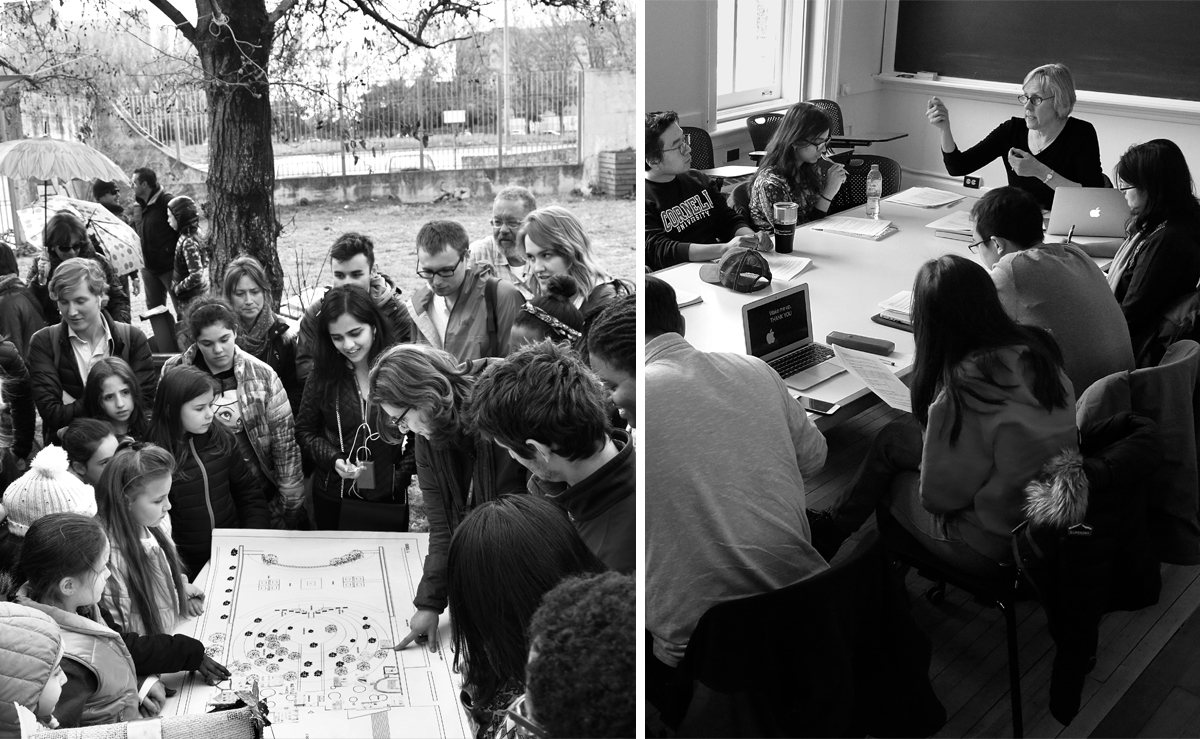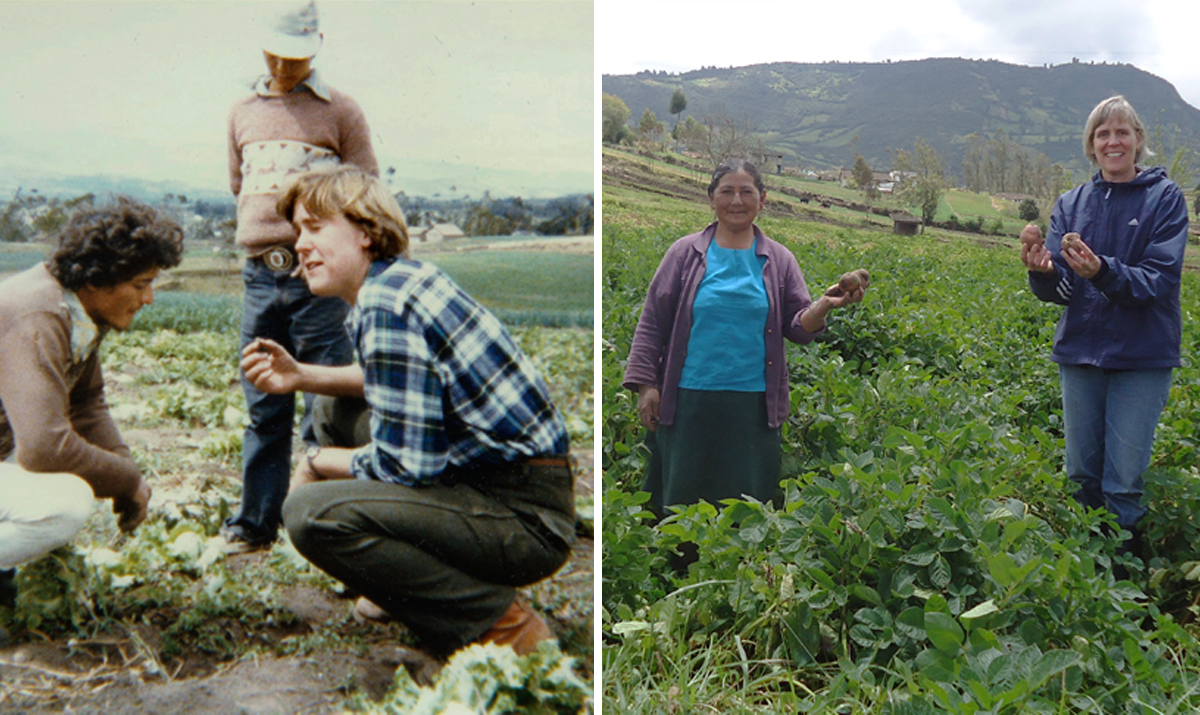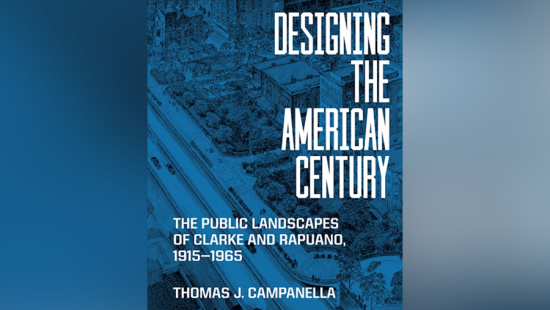Mildred Warner on New Paradigms in Social Policy Planning
On November 7, Warner received the ACSP Margarita McCoy Faculty Award for the advancement of women in planning in higher education through service, teaching, and research. Warner discusses her career, priorities, and pressing concerns.

Named for pioneering urban planner and educator Margarita McCoy (1923–2016), the McCoy award is conferred by the Association of Collegiate Schools of Planning's (ACSP) Faculty Women's Interest Group. For Warner, a professor in the departments of City and Regional Planning and Global Development, and director of the Local Government Restructuring Lab, the award is the most recent in a particularly extensive list of professional honors and achievements.
Marcela Gonzalez-Rivas, an assistant professor in the Graduate School of Public and International Affairs at the University of Pittsburgh, nominated Warner for the award.
"I met Dr. Warner when I was a visiting assistant professor at CRP, but her supportive mentoring role for me began in recent years," she says. "As a mentor, Mildred has shown genuine interest in learning about my research focus and willingness to engage in debating my ideas and I thought that she would be a great candidate to receive the award."
Warner's work stands out in the planning field, a discipline that has historically focused on physical issues, land use, and design for the attention she dedicates to women, children, gender, and aging, as well as her commitment to designing research that shifts policy paradigms for physical design, mobility, engagement, and economic participation. Her work is mainly done at the local government level, addressing issues of finance and service delivery, and furthering the link between planning, economic development, and public health.
As a social policy planner, Warner has maintained a particular focus on development beyond urban settings, working for the Peace Corps in Ecuador, for The Ford Foundation Rural Poverty and Resources Program, and the Cornell Community and Rural Development Institute before she began teaching at AAP in 1998.
How will the McCoy award help you moving forward in your work on women and gender? How has advancing women's causes resulted in concrete achievements in policy?
It is a great career honor to receive the Margarita McCoy Faculty Award. In the field of planning, I have been advancing the issues faced by women, children, and older adults for most of my career. While the award specifically honors my mentoring of students and junior faculty within the academy, the roles I can play outside the academy — working with practicing planners at the city, state, and national levels — has been a key focus of my work.
Academics can provide intellectual cover for practitioners to engage in new approaches. For example, the field of economic development planning was not open to addressing issues of child care, but we changed that. My research has put child care and its market challenges squarely on the agenda of economic development agencies and legitimized giving attention to this issue in their practice. To do so, we had to overcome long-standing gender bias within orthodox conceptions of the economy and what counts. Our use of standard economic impact analyses — but focused on child care — raised the visibility of the sector to economic developers and this led to state and local teams across the country coming together to address child care challenges.
I broadened this work to an age-friendly-communities focus and built links to AARP and the American Planning Association (APA) as part of their livable cities work. This initiative links inclusive design with service delivery and civic engagement to build a shared vision for planning for all generations. Through this work, I am able to build explicit links between planning and public health for women, children, and aging communities.

"Our research suggests that gender sensitivity can 'ride the aging tsunami.' Attention to aging requires planners to imagine new paradigms — for thinking about physical design, mobility, engagement, and economic participation."
You have been the faculty advisor for over a decade to the Cornell Women's Planning Forum; describe the importance of this role.
It is a privilege to advise Cornell students. They are so smart, engaged, and hardworking. I brought the students in the Women's Planning Forum together with practicing planners in the Planning and Women Division of the APA to look at what we might do to increase attention to issues faced by women, children, and older adults. We received a small APA Divisions grant in 2014 to focus on gender and aging and used it to design two surveys — one of planning practice in the community, and one of gender dynamics in planning workplaces. Gender issues had fallen off the radar of students for a time, and the Planning and Women Division was one of the smallest APA divisions at the time. But our joint work generated a lot of interest and the sessions where we presented results were standing-room-only. Coordinating work through the Cornell Women's Planning Forum provided students an opportunity to see how we put gender issues back on the agenda.
Has the passage of time changed the issues we should focus on, for example, how attention on children and families has progressed to inclusive livable communities?
Historically, the field of planning has been focused more on physical issues such as land use and design, less on economic development, and least on social policy. But I am a social policy planner. One of the challenges in my career has been how to legitimize attention to women and children. Early on, I focused on child care and made the links to economic development. More recently I have expanded the focus to planning for age-friendly cities because there is more interest in aging right now and it provides a mechanism to better address the needs of women and children as well.
Our research suggests that gender sensitivity can "ride the aging tsunami." Attention to aging requires planners to imagine new paradigms — for thinking about physical design, mobility, engagement, and economic participation. In my work with AARP and its livability indicators project, I was able to broaden attention to differences by gender, across the age spectrum to include children, and across the rural to urban spectrum.
At AAP and universities everywhere, there is attention to democratizing teaching and learning. How does the operate in your work with post-docs, in class, and as an advisor for graduate/doctoral candidates?
Engaged research and learning is a priority at Cornell. I have an extension appointment in the college through Cornell Cooperative Extension, which entails widespread community engagement with local government associations. My teaching is focused on community practitioners and policymakers as well as students. Extension requires an engaged approach. My research agenda is responsive to the needs articulated by practicing professionals. That is our audience in CRP. My focus has been primarily at the local government level; and I have learned much by working with local leaders. The challenges exposed in practice give me the questions that push my research to the cutting edge. This is the thrill of having an extension component to my job description. It enables me to engage my research and teaching with practice.
I love being able to link students to practice. My students regularly work with my extension partners and this engagement helps prepare for their careers. It also provides an exciting opportunity for Ph.D. students who learn how to learn from their community partners, making them collaborators in their research.

You are bilingual. Are you still involved in Latin America?
I have maintained my connection to the rural community in Ecuador where I worked in the Peace Corps, and expanded my research connections to colleagues who work on rural development and local service delivery issues around the world. My book, Un Buen Lugar en Tungurahua: Estrategias Familiares de un Pueblo Rural, includes chapters coauthored by community members from the Ecuadorean village I served 40 years ago. It is a collaborative ethnography that explores the meanings of buen vivir — community wellbeing— and shows how residents use their active citizenship to create a more livable community. I returned to Quito in 2019 for the book launch where the community members presented their chapters alongside the academics, and two weeks ago I was part of a Ph.D. candidacy exam in Bolivia on models for urban water delivery, attended via Zoom.
"In the context of the current crises — the pandemic, racial justice, and economic justice — cities are the site of much of the struggle and cities themselves are struggling. Congress has been unwilling to provide adequate stimulus relief to support the critical role that state and local governments need to play in this crisis."
Politically, socially, and economically, communities have been thrown into heightened challenges on every level in 2020. What are the biggest challenges US communities are facing today?
In the context of the current crises — the pandemic, racial justice, and economic justice — cities are the site of much of the struggle and cities themselves are struggling. Congress has been unwilling to provide adequate stimulus relief to support the critical role that state and local governments need to play in this crisis. I am very worried for the future of local government. Revenue cuts are deep and will get deeper, and service cuts will follow — at a time when more investment is needed to stem the profoundly negative effects of the pandemic and its associated recession.
My team has been working on COVID-related research, looking at policy options that state and local governments can implement to reduce some of the misery. We profiled this work in the AAP interdisciplinary panel webinar in September, Planning Public Health, and Responses to COVID-19.
My Restructuring Local Government Lab has been tracking the stressors on local government and its response for decades. I have raised several million dollars in competitive external research funds to support this work. I always involve students in this research. Our work after the Great Recession (2007–09) led to the articulation of a theory of 'pragmatic municipalism' to describe how local governments are responding to the crisis. I work closely with professional city managers and the International City/County Management Association in this work, as well as global partners that bring a comparative perspective in Europe, China, and Latin America.
My current grants look at the role local and state policy can play in improving labor rights, reducing inequality, promoting environmental sustainability and public health. The challenges are immense, but I am happy to be able to provide research support to the often-neglected local government sector.
Finally, you take enjoyment in connecting life to professional practice. Give us a quick look into your life?
I live on a farm and enjoy gardening. We eat very local — from our backyard. I also love to cross country ski in winter — out my back door. In the past, I have enjoyed sharing these experiences with students, and my husband James Pratt, a retired Cornell agricultural economist, has been generous with his time and knowledge, inviting students to learn about a different world. This cross-cultural sharing is one of the special benefits of working with students at Cornell.







